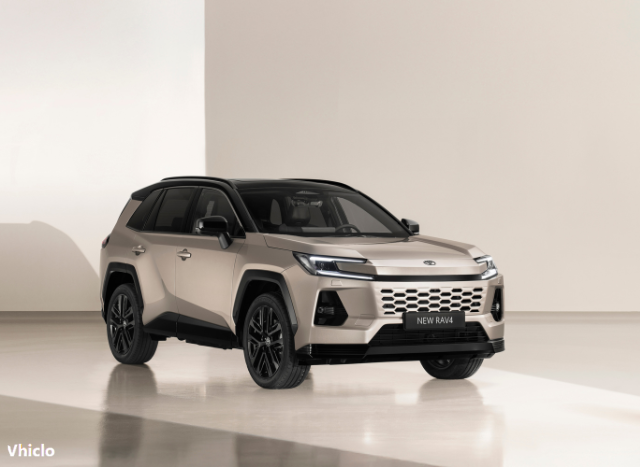Ford, Stellantis, and Hyundai act quickly to protect sales and market share as 25% import tariffs disrupt the auto industry. As the 25% tariff on imported vehicles takes effect under the Trump administration, several automakers are moving swiftly to adjust strategies, offering incentives and price stability to maintain consumer confidence and boost showroom traffic.
Industry analysts suggest this could be an opportunity for brands to capitalize on market chaos, turn inventory faster, and strengthen their domestic appeal amid an uncertain economic outlook.
- Ford introduces From America, For America pricing to drive sales.
- Stellantis and Hyundai follow with similar consumer-friendly moves.
- U.S. dealers saw a major sales surge in late March.
- Automakers aim to move inventory fast ahead of a possible recession.
- Tariffs are creating both risk and opportunity in the auto market.
Contents
- 1 Ford Leads With “From America, For America” Employee Pricing
- 2 Industry Reactions: Stellantis, Hyundai Join In
- 3 Inventory Pressures Push Automakers to Act
- 4 Consumer Demand Surges Pre-Tariff
- 5 Sales Performance and Stock Market Impact
- 6 Economic Uncertainty Looms: Recession Risks Rise
- 7 Conclusion: Automakers Shift Gears to Meet the Moment
Ford Leads With “From America, For America” Employee Pricing
In response to the new tariffs, Ford Motor Company launched a nationwide employee pricing program titled “From America, For America.” The initiative allows U.S. consumers to purchase select Ford vehicles at or near dealer invoice prices—traditionally a rare and aggressive pricing strategy due to its impact on dealer profit margins.
Ford explained its motivation in a public statement:
“We understand these are uncertain times. Whether it’s navigating a changing economy or needing a reliable vehicle, we want to help.”
Ford emphasized its strong U.S. production footprint, especially in trucks, to reassure buyers of its domestic value proposition. The program, which launched hours after the tariffs were implemented, will run through June 30.
Ford’s Response:
- Offers near-invoice pricing for customers
- Reinforces Ford’s American manufacturing presence
- Supports dealers with financial assistance
- Aims to drive volume before potential recession hits
Industry Reactions: Stellantis, Hyundai Join In
Stellantis, parent company of Ram and Jeep, followed Ford’s lead with a similar employee pricing offer. Despite its European roots, Stellantis emphasized its U.S. operations and extensive domestic inventory, particularly of trucks and SUVs.
Meanwhile, Hyundai Motor America pledged not to raise vehicle prices for at least two months, offering peace of mind to consumers hesitant to purchase under the threat of tariff-induced cost hikes.
“It makes sense to capitalize on the moment,” said Erin Keating, executive analyst at Cox Automotive. “These moves show they’re meeting the customer where they are.”
Inventory Pressures Push Automakers to Act
Ford and Stellantis are sitting on some of the highest vehicle inventories in the U.S. market:
- Ford & Stellantis Inventory Days’ Supply: 110–130 days
- Industry Average: 89 days
- Healthy Range: Typically 60–80 days
By discounting now, these automakers aim to:
- Clear out older model year inventory
- Prepare showrooms for the incoming 2025/2026 models
- Maintain or grow market share during an unstable economic period

Consumer Demand Surges Pre-Tariff
In the days leading up to the tariff rollout, dealerships experienced a surge in traffic as consumers rushed to buy vehicles before potential price increases.
“Last weekend was the best I’ve seen in years,” said Hyundai North America CEO Randy Parker. “Shoppers came in droves to beat the tariffs.”
March 2025 new vehicle sales reached 1.59 million units, according to Cox Automotive—the strongest sales month in four years, exceeding all projections.
Sales Performance and Stock Market Impact
Despite strong recent sales, Ford and Stellantis still reported declines in Q1 vehicle sales:
- Stellantis: Down 12% YoY
- Ford: Down 1.3% YoY
Stock performance this week:
- Ford: Fell 1.4%
- Stellantis: Dropped 14.2%
- General Motors: Declined 5.4%
While Ford’s share price was more resilient—thanks to its U.S. manufacturing base and proactive pricing—analysts are cautious about long-term trends.
Economic Uncertainty Looms: Recession Risks Rise
Adding to the industry’s urgency, J.P. Morgan raised its forecast for a U.S. recession from 40% to 60% by year-end. Automakers are racing to sell while demand is hot, knowing a consumer pullback could be on the horizon.
“If demand is strong now, it’s smart to seize it,” Keating noted. “Incentives today could offset the risk of slower sales later this year.”
Conclusion: Automakers Shift Gears to Meet the Moment
As Trump’s import tariffs reshape the automotive landscape, Ford, Stellantis, and Hyundai are adjusting quickly—slashing prices, holding the line on increases, and reinforcing their domestic commitments. These moves are designed not only to boost short-term sales but also to protect long-term market share in an unpredictable economic environment.
Automotive industry expert and editor of Vhiclo, specializing in car news, EV technology, and in-depth vehicle analysis. With years of experience in the field, Koutaibah provides trusted insights for enthusiasts and professionals alike.






